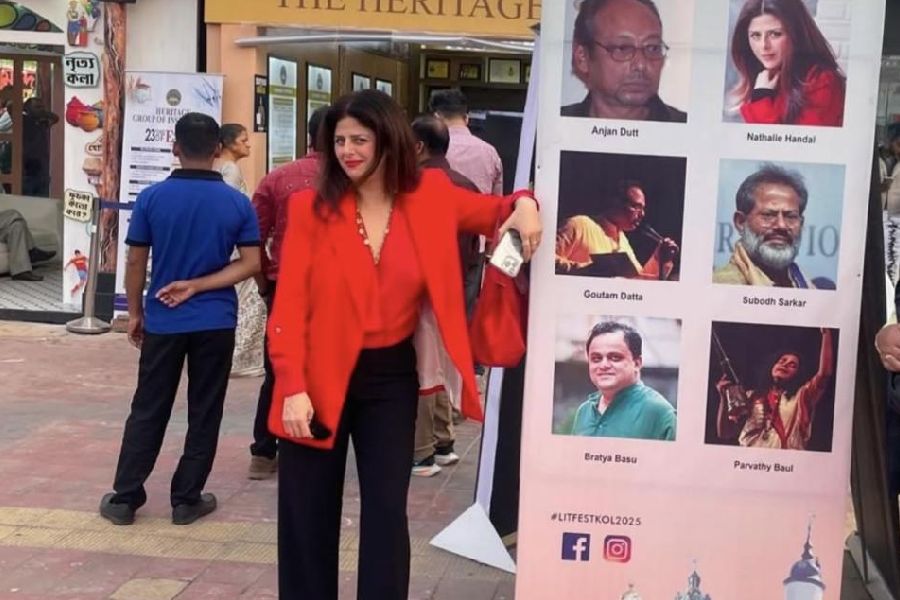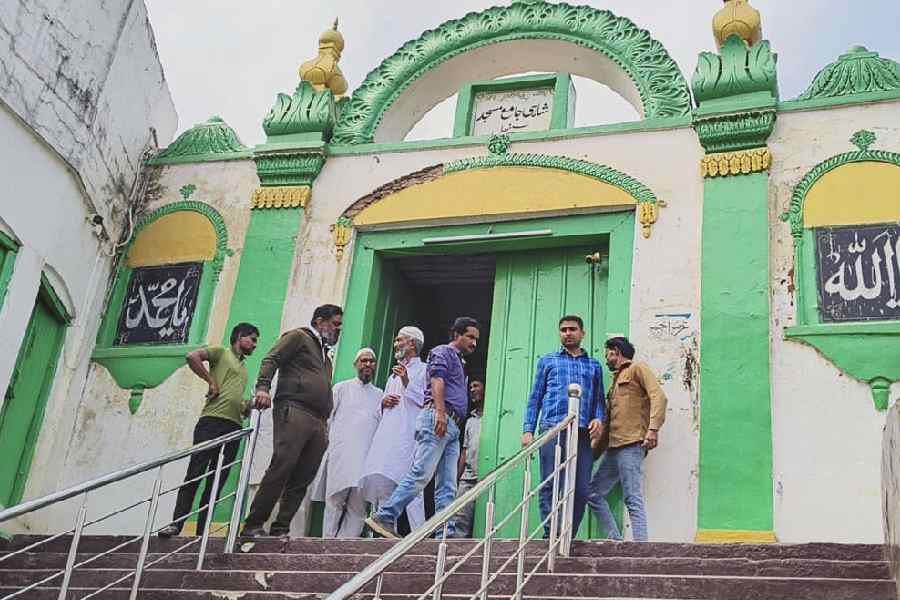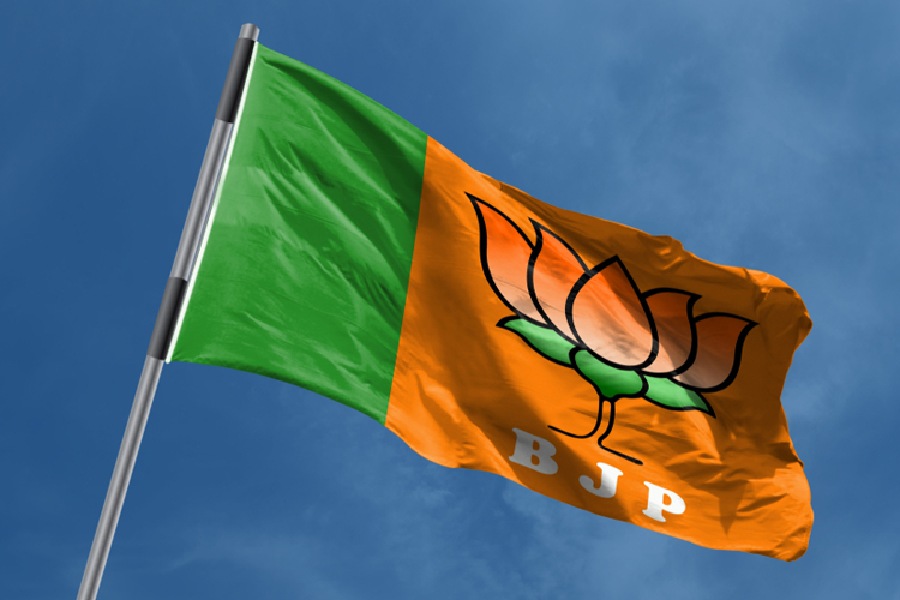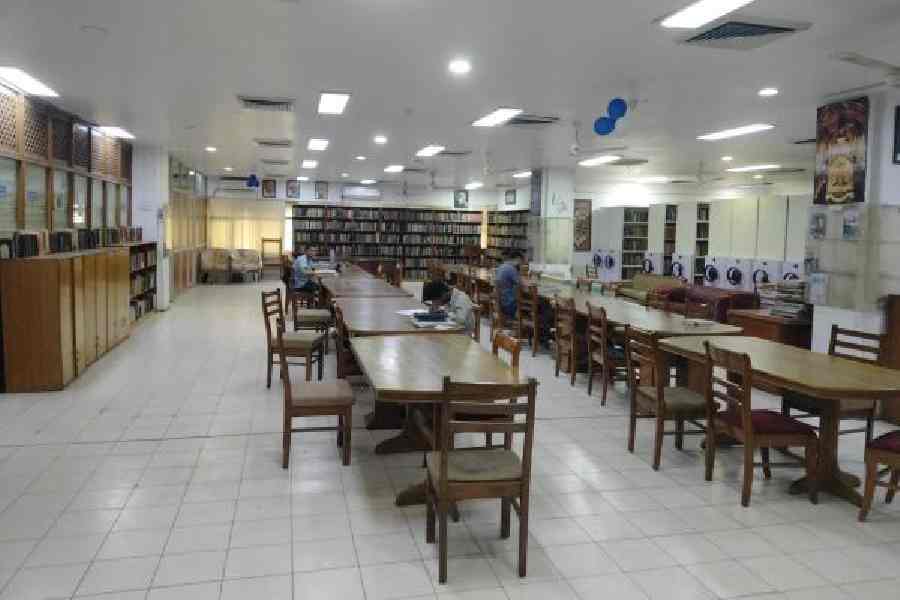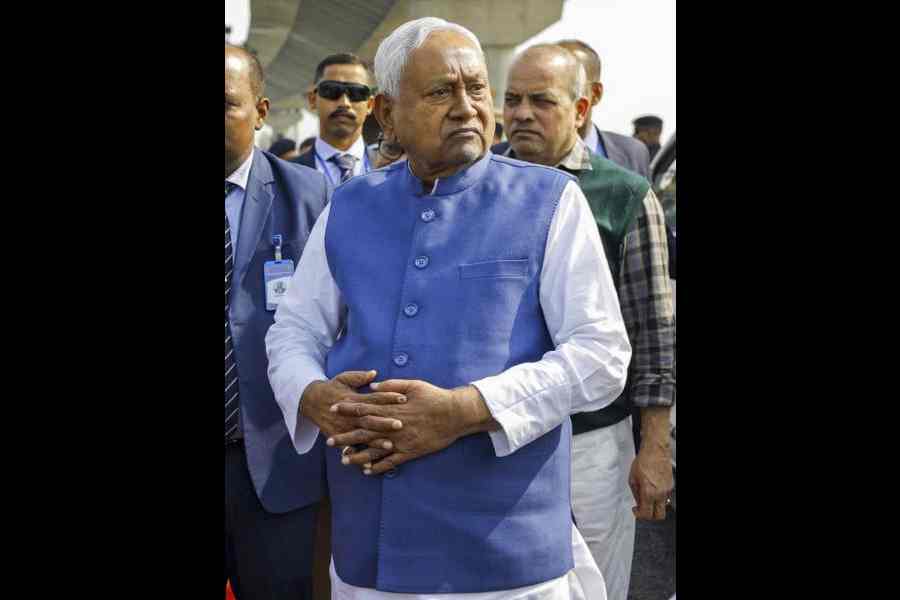Q You juggle a number of roles — poet, editor and academic. Do these complement or contradict your creativity?
I think they inform each other. I come from contradictory realities. I lived in cities where there was extreme poverty, others were at war. But then I also… lived in [former colonial] empires like France, the United States of America, the United Kingdom. Because the way I was raised was very much like the Silk Road, I can see myself at all these crossroads.
Q In one of your earlier interviews, you have said that you led a “tri-continental life”. How have these pluralities, these identities, shaped your poetry? Do you situate yourself between belonging and exclusion?
What you say, it’s exactly that. I occupy an intersection between Otherness and belonging. I have always felt a connectedness with places and people because I have been so open to receiving, because I am someone who is naturally drawn towards commonalities rather than differences.
Q This openness of yours, is it a kind of cultural conditioning because of your diverse upbringing?
I think it’s a personality trait. I also think it is my poetic tendency. I don’t have a mother tongue and my English is pollinated with six languages. But I try and collect words and store them in my memory. The other thing is that I have never lived in one place. I have always been in in-between places because my parents were in Latin America, my other family in the Middle East, others in Europe. But I have a different relationship with New York.
Q As a writer, what are the gifts that New York has given you?
Two things make New York essential. The first is that no matter what your accent or skin colour is, nobody can ask you to “get out”. The second thing is of fundamental importance to me. Because I am from multiple homes but also from no home in particular, it was essential to find a home for my poetry. I didn’t write in French so I couldn’t be a part of France. I have lived in England but I wasn’t British. Although I am from Palestine, I didn’t write in Arabic. But New York and American English I could lay claim to. I don’t know if you know of Mahmoud Darwish. He is the Tagore of the Arab world. When I was coming of age, he gave me my first job, which was to interview Alan Ginsberg. Darwish and his generation, they were writing in Arabic. But I was a young writer nobody really understood. They knew I was originally from Bethlehem but I didn’t write in Arabic, so for them, although they saw me as a Palestinian, I wasn’t speaking to Arabic literature. I kept telling them one thing. I told them that the Palestinian story cannot be told in Arabic only because the Palestinian story is a global story.
Q Have your Palestinian roots dominated your other identities?
When people have interacted with me, I have often heard remarks like “But you’re not really like them” or “You’re different”. Which shows the incredible lack of knowledge that there is of a society, of a community. In fact, there is a programme in Queens college in New York where I would speak to very religious Jewish students.
The students would cry because they couldn’t quite comprehend that I could speak to them. And they couldn’t comprehend because the education they had received marked the Other as the Enemy. But then the students discovered that that is not really the case.
Q You have edited The Poetry of Arab Women. Your own work is getting translated into 15 languages. How do these experiences — translating into another language and having one’s own work translated — differ?
It affirms that we have to really be open. Translation isn’t only linguistic; it is cultural. People say you can’t translate poetry. But who said you have to approach it in exactitude?
Q Would you consider poetry the most political of the literary acts?
I think everything is political. Even love is political.
Q You have been to Calcutta before?
Yes. It was 17 years ago.
Q That’s a long time.
Yes. It was an epic trip. The Calcutta Book Fair did not take place that year. [The high court banned the 2008 fair citing environmental concerns about the choice of venue.] So we ended up going to villages. We had an amazing group — Joy Harjo [American poet], Yusef Komunyakaa [American poet]. I know India. But when I think of India, I think it is only in Calcutta that there’s something of my spirit that I identify most with. It’s like who you fall in love with, you can’t really explain those things. I think the city and the people, there’s a spirit that runs through them. When I got here from Abu Dhabi I was happy to hear all the honking. Why? Because in Abu Dhabi, you only hear the air conditioner. The city’s noises are like music. That music actually is poetry.

